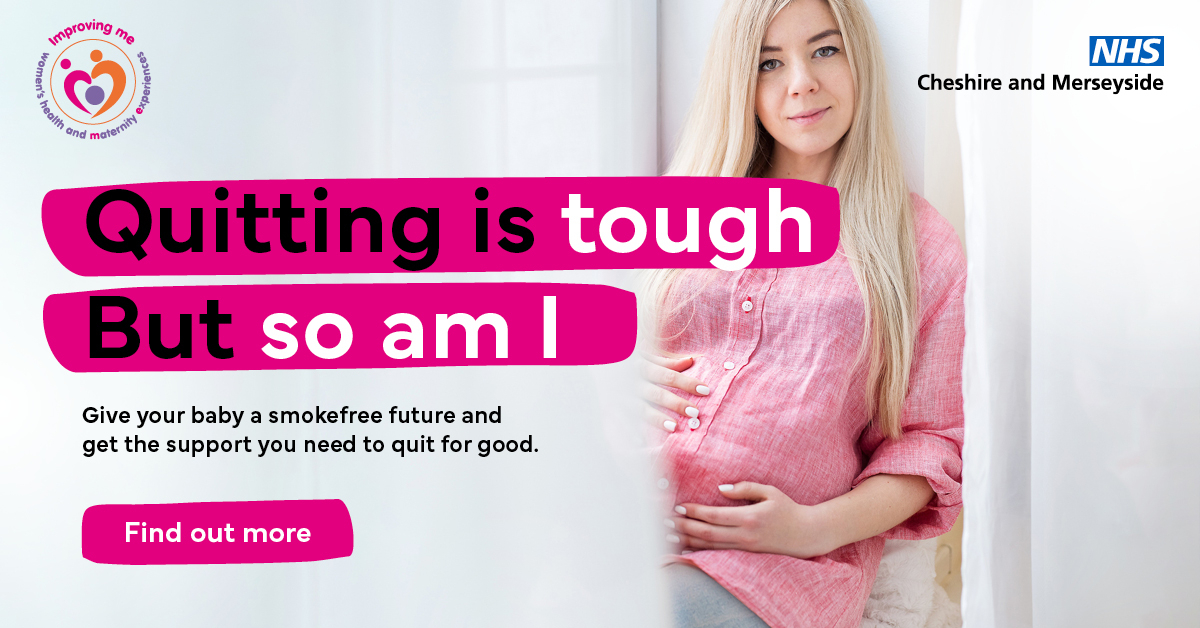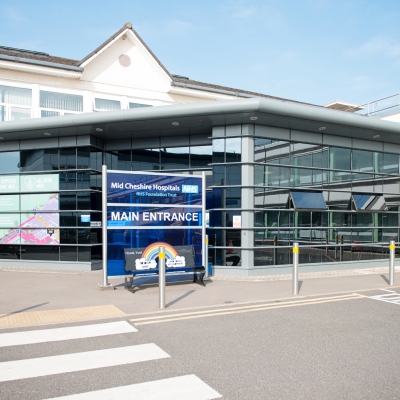Early pregnancy advice
From the time you stop using contraception and for the first 12 weeks of pregnancy, it’s recommended that you take a supplement of 400mcg of folic acid each day (available from any chemist and some supermarkets) as well as eating plenty of folate-rich foods such as green leafy vegetables, pulses and fortified breakfast cereals. This is to help prevent neural tube defects such as spina bifida. Current national guidelines recommend that you take a higher level of 5mg of folic acid if you have a family history of spina bifida, multiple pregnancy, have diabetes, certain other medical conditions or your BMI is above 30.
Contact your GP to inform them you are planning to become pregnant if any of the above criteria apply to you so that you can be prescribed the correct does of Folic Acid.
It is important to report any bleeding to your Midwife or GP, as bleeding in pregnancy requires a medical review. In early pregnancy it could be a sign of miscarriage, although many women who do bleed go on to have successful pregnancies. If you experience any bleeding in early pregnancy, contact your GP who may refer you to the Early Pregnancy Assessment Unit.
Using the Tommy's pregnancy planner tool can help you to identify whether there is anything you need to do to optimise the wellbeing of you and your baby.www.
The NHS Pregnancy page includes all you need to know about trying for a baby, pregnancy, labour and birth.
In early pregnancy your body is going through many changes and you may notice different signs and symptoms Usually there is no need to be worried, but if you want to check if your symptoms are normal and how to manage them, visit the NHS common health problems in pregnancy page.
Lifestyle advice during pregnancy
Cheshire East: One You Cheshire East offer residents friendly local sup port with a number of programmes to help you have as healthy a pregnancy as possible. They can help you to lose weight, move more, and be smoke free. New services include stand strong and healthy baby & you. To sign up for for any of their programmes, visit the One You Cheshire East sign up page.
port with a number of programmes to help you have as healthy a pregnancy as possible. They can help you to lose weight, move more, and be smoke free. New services include stand strong and healthy baby & you. To sign up for for any of their programmes, visit the One You Cheshire East sign up page.
Cheshire West and Chester: Brio Leisure now run an integrated wellness c ontract known as Cheshire Change Hub, offering free health and wellbeing services to residents of Cheshire West and Chester. Visit the Cheshire Change Hub website to find out more.
ontract known as Cheshire Change Hub, offering free health and wellbeing services to residents of Cheshire West and Chester. Visit the Cheshire Change Hub website to find out more.
Alcohol and drugs can have a potentially serious effect on your unborn baby. It is important to be honest with your Midwife if you are drinking alcohol or taking drugs during pregnancy, to enable you to receive the help and support you require. The NHS Illegal drugs in pregnancy and Drinking alcohol while pregnant pages include more information as well as the Drymester website.
If a blood test shows that you are anaemic during your pregnancy, you may be prescribed iron tablets, but you can also make changes to your diet to increase your iron levels. More information can be found on the NHS Iron deficiency anaemia page.
For information on keeping healthy in pregnancy see our leaflet: Eating healthily and weight management in pregnancy and following birth
Dieting in pregnancy is not recommended but healthy eating is advocated. National Institute for Health and Care Excellence (NICE) state that there is only a need for an extra 200 calories per day in the last three months of pregnancy, therefore pregnant women should be advised against “eating for two”.
The Royal College of Midwives (RCM) has teamed up with Slimming World to provide information, advice and support with healthy eating during pregnancy. We encourage you to eat healthily and to keep active during pregnancy as evidence indicates this helps to prevent and limits the complications associated with excessive weight gain during pregnancy. This benefits both mother and baby and will also help you after you have had your baby.
For more information, please see the Slimming World website: Working together to help you manage your weight before, during and after pregnancy
It is important that you remain as active as possible throughout your pregnancy. This will help your body to cope better with pregnancy and labour. The NHS Exercise in pregnancy page includes general exercise tips, pelvic floor exercises and exercises to avoid.
It is important for you to let your GP and Midwife know if you are using any type of medication whether it is prescribed, purchased from a pharmacy or recreational throughout your pregnancy and during breastfeeding. Some medications are not safe to take during pregnancy, and may cause side effects to you or harm to your baby.
To reduce your risk of excessive perineal tearing and long term problems with your pelvic floor, we advise that you do regular pelvic floor exercises throughout your pregnancy. More information can be found in the links below:
During your antenatal appointments the Midwife will regularly check your carbon monoxide levels.
Carbon monoxide is a poisonous gas which you can’t see or smell but is dangerous to you and your baby. Exposure can prevent oxygen reaching your baby, slow its growth and development, and can result in miscarriage, stillbirth and sudden infant death. For more information about how this test is carried out, see the Test Your Breath leaflet.
One reason your carbon monoxide levels may be raised, is if you or a household member smokes. If you would like help to stop smoking there are a number of support services available to you: www.
This short video eplains the effects of smoking on you and your baby.
Cheshire East residents www.
Cheshire West residents cheshirechangehub.org/
You can refer yourself to these services, or your Midwife will arrange a referral for you. You will be offered behavioural support as well as Nicotine Replacement Therapy (NRT) to help reduce your cravings and help you to quit smoking.
Research has shown that in the third trimester of pregnancy (from 28 weeks) going to sleep on your side has been shown to help prevent stillbirth. Further information can be found on the Tommy’s website about sleep positions in pregnancy.
 There are a number of ways we can help you and your household members to stop smoking. This following website has been created to help mums-to-be in the Cheshire and Merseyside area to experience a smokefree pregnancy, and by doing so give their child a healthier start to life. If you want any more information or support, please speak to your Midwife.
There are a number of ways we can help you and your household members to stop smoking. This following website has been created to help mums-to-be in the Cheshire and Merseyside area to experience a smokefree pregnancy, and by doing so give their child a healthier start to life. If you want any more information or support, please speak to your Midwife.
www.
Quitting is tough, but so am I Facebook page.
I am tough Instagram account.
You will be offered a Whooping Cough vaccination, it can be given from 16 weeks of pregnancy. For more information: Whooping cough vaccination in pregnancy guide (UK Health Security Agency).
You will also be offered an influenza (flu) vaccination, usually within the autumn/winter period (September to March). For more information: Flu vaccine (NHS).
COVID-19 vaccine
Vaccination is recommended in pregnancy, but the decision whether to have the vaccine is your choice. The information below will help you make an informed choice about whether to get the COVID-19 vaccine if you are pregnant or trying to get pregnant.
More information can be found at: Royal College of Obstetricians and Gynaecologists COVID-19 vaccines, pregnancy and breastfeeding.
For further information: #MyWhyCampaign, MAMA Academy
Research has shown that having the COVID-19 vaccination can also protect your baby until it is 6 months old.
It is important that you get enough vitamin D during your pregnancy and if you are breastfeeding. The following women are at a greater risk of having lower levels of vitamin D if:
- Your family origin is South Asian, African, Caribbean or Middle Eastern.
- You stay indoors for a good deal of time and if you usually cover your skin when outdoors.
- You have a diet that is low in vitamin D.
- Your pre-pregnancy BMI is above 30.
The best source of vitamin D is sunlight but having a vitamin D rich diet also helps – oily fish, eggs, meat and fortified cereals and margarine. However, you may choose to take a vitamin D supplement (10 micrograms a day) to ensure you get enough vitamin D.
A healthy diet is an important part of a healthy lifestyle at any time, but particularly if you are pregnant or planning a pregnancy. Eating healthily during pregnancy will help your babies develop and grow and will help keep you fit and well. Make sure you eat a variety of different foods every day in order to get the right balance of nutrients that you and your babies need.
Your GP or Midwife will work out your BMI (your weight in relation to your height) at your first visit. This information will be recorded in your notes and used to help guide and plan your care. If your BMI is below 18 or 30 and above, you will be offered advice and guidance.
- Eat plenty of fruit and vegetables and aim for at least five portions a day. Pure fruit juice can only count once towards the five a day.
- Starchy foods like bread, potatoes, rice, pasta, chapattis, yams and breakfast cereals are an important part of any diet. They contain vitamins and fibre. Try eating wholemeal bread and cereals when you can.
- Lean meat, fish, poultry, eggs, cheese, beans and pulses are good sources of nutrients.
- Dairy foods like milk, cheese and yoghurt contain calcium and other nutrients needed for your baby’s development. Choose low fat varieties wherever possible.
- Try to cut down on sugar and sugary foods - sugar contains calories without providing any other nutrients.
- Cut down on fat and fatty foods as well. Fat is very high in calories and can contribute to weight gain and increase the risk of heart disease. Avoid fried foods and go easy on foods like pastry, chocolate and chips which contain a lot of fat.
- Citrus fruit, tomatoes, broccoli and potatoes are good sources of vitamin C which you need to help you absorb iron.
- Fish contains the important Omega 3 essential fatty acids which are needed for a baby’s development and is also a rich source of vitamin B12.

